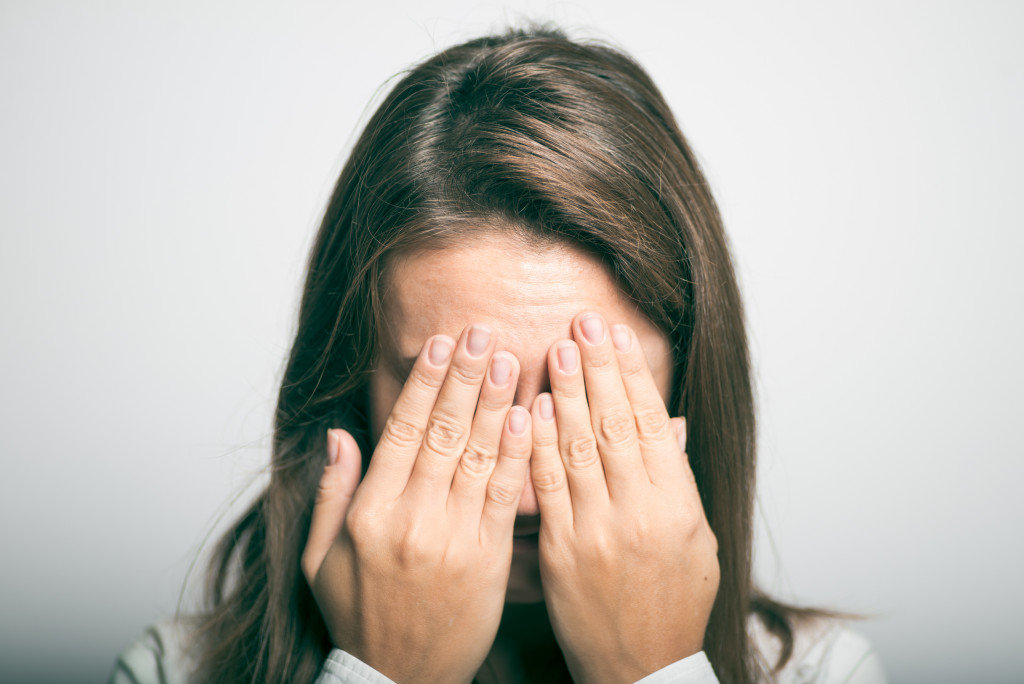Many people deal with chronic anxiety and stress, including other symptoms including chest pain, a racing heart, agitation, or nervousness. In reality, anxiety has become the most prevalent mental health condition in the United States. Nearly more than 18 percent of individuals are affected by anxiety annually. It can often lead to other health issues or result from another entirely different problem.
Get the correct diagnosis if you want to get the best possible treatment. In this article, you’ll learn how you can fight anxiety and stress the natural way.
7 Ways to Ease Your Anxiety
You can safely combine natural remedies with more traditional treatment options. But certain natural supplements and changing your diet can influence how anti-anxiety pills work, so you should consult a physician before giving these alternatives a try.
1. Exercising to Move Your Body
Exercise is the first alternative to eliminating negative, anxious energy, and studies have evidence for this claim. For instance, a study in 2015 revealed that exercise could be a relief for anxiety. However, bear in mind that only higher-quality research can determine how effective it is. It can also ease the anxiety stemming from stressful situations.
For example, a 2016 study shows that exercise can help people suffering from anxiety by quitting smoking or drinking alcohol.
2. Meditate to Find Inner Peace
Many studies claim that mindfulness and meditation can ease anxiety symptoms. First, meditation will help slow down racing thoughts, making it easier to control your anxiety and stress. You can also find different meditation practices incorporated in your exercise. One habit you can include is mindfulness yoga.
Mindfulness-based techniques are also becoming significantly popular. One study done in 2010 revealed that mindfulness and meditation can be helpful for a person suffering from disorders resulting from anxiety and stress.
3. Don’t Drink Too Much Alcohol
Many people consider alcohol a natural sedative. Drinking a glass of whiskey or wine might help you calm your nerves when you’re feeling stressed or anxious. But once it’s over, anxiety will return. It’ll be more painful. You might develop dependence if you become too reliant on alcohol to ease stress instead of treating its root cause.
4. Do a Few Relaxation Exercises
Most people don’t notice it, but they tend to unconsciously clench their jaws and tense their muscles if they’re stressed and anxious. If you want to minimize these problems, give progressive relaxation exercises a try. You can start with lying in a position you’re comfortable with and slowly relaxing and constricting your muscles.
Do it from to bottom, meaning you’ll have to start with your toes and work your way up to your jaws and shoulders.
5. Use Essential Oils at Home
Essential oils, especially lavender essential oils, have been used for centuries. Today, lavender has become one of the most sought-after essential oils. In a 2013 study, researchers discovered that lavender essential oils could alleviate depression, sleep disturbance, and anxiety. It also showed that it prevented withdrawal symptoms, drug interactions, or other adverse effects.
To ease stress, you can apply lavender oil on the back of your neck, on your temples, or behind your ears. You can also safely combine lavender oil with vetiver oil from the Vetiver herb in India. Thousands of years ago, Indians used the herb for ancient healing practices. Vetiver has uplifting and soothing properties, making it more popular as the “oil of tranquility.”
You can apply a few drops of vetiver oil on your neck, chest, or wrist to alleviate anxiety and feelings of nervousness. Or, add a few drops of vetiver oil into your bath water to get its uplifting and soothing benefits.
6. Try to Avoid Smoking
Highly stressful and anxious situations force people to smoke. However, too much can be harmful, like drinking alcohol. Reaching out for a cigarette when you’re stressed or anxious will provide temporary comfort that will make things worse down the road. One study shows that you’ll be at a higher risk of developing an anxiety disorder if you start smoking at a young age.
It also shows that nicotine and other chemicals in a cigarette will affect the pathways in your brain, further associating it with anxiety. Most companies will also remind people about the severe effects of too much smoking as part of their public relations effort. In this case, they depend on online campaigns to convey their message. This is why many healthcare facilities have also hired internet marketing services to help them get their message across to a wider audience.
7. Manage Your Time Wisely

Most people feel stressed or anxious if they have too many commitments at once. These might involve health-related activities, work, or family. Manage your time wisely to alleviate anxiety. Find ways to change your daily routine. Incorporate new habits that you think will help you manage these negative emotions. Doing that right will allow you to complete one task at a time instead of multi-tasking.
Use online calendars or book-based planners. That will help you minimize the urges to multi-task. Others also try breaking down significant projects into manageable phases to help them complete the task with less stress.
If you’re stressed out and anxious, try following these ideas to find relief. Natural home remedies might help ease anxiety, but they still can’t replace professional help and prescriptions. Increased stress might require prescription medicine or therapy. Meet with your physician to find the path that fits your condition.




